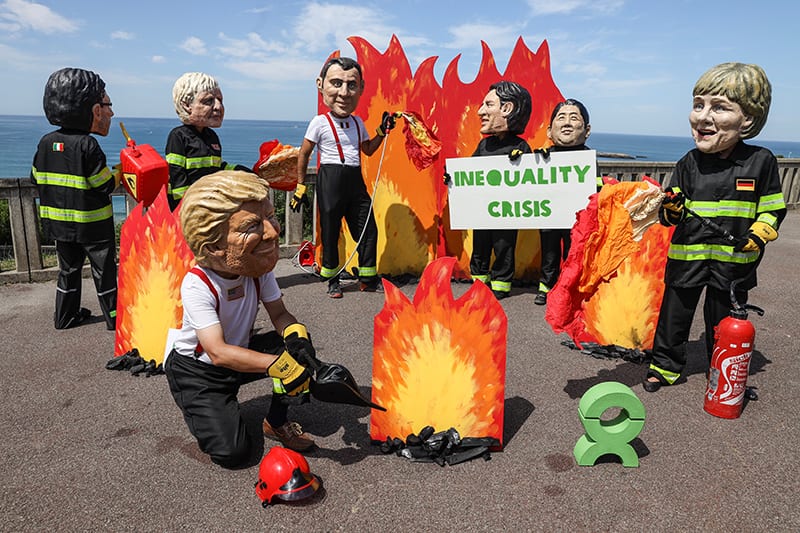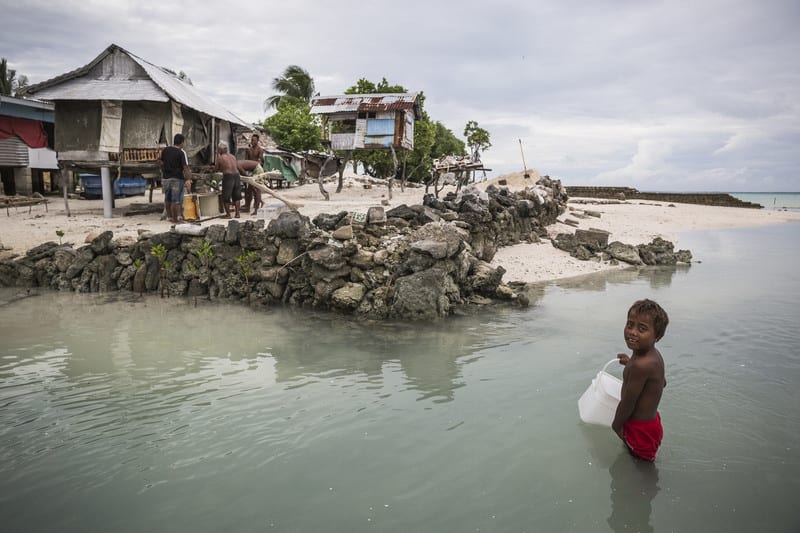Today’s announcement is a fantastic outcome for communities on the frontlines of climate change, Oxfam Aotearoa Executive Director Rachael Le Mesurier said in response to the $1.3 billion the Government has promised in climate finance over the next four years.
An Oxfam report in December last year found that out of 23 high-income countries, New Zealand’s level of climate finance funding ranks just 21st when calculated on a per capita basis based on 2018 figures.
“This new commitment will go a long way to increasing New Zealand’s ranking. It would put Aotearoa New Zealand just within the range of what Oxfam concluded would be its fair share towards a collective goal to mobilise $100 billion a year for developed countries,” said Le Mesurier.
Oxfam Aotearoa estimated that New Zealand’s fair share of this goal was $301.5 million – $540 million per year, and this announcement would take New Zealand’s commitment to $325 million per year from 2022. However, given that the collective goal was due to be met by 2020, Le Mesurier said that New Zealand’s climate finance should continue to rise in future years within a growing aid budget.
“Pacific people on the frontlines of climate change – the farmers, the communities, and the families – have a greater opportunity to thrive, not just survive. If followed through, this will mean more resources for small scale farmers in Solomon Islands to adapt to sea-level rise; more renewable energy for rural communities in South East Asia; and a greater sign that Aotearoa is ready to support those most impacted by climate breakdown.
“It is a relief to hear that the funds for climate action will not squeeze out other crucial funding for other challenges our region faces, such as healthcare, social safety nets, and humanitarian relief.”
Oxfam notes that climate finance is only one part of the grand bargain to push for all countries to keep global heating to within the Paris Agreement’s goal of 1.5 degrees.
Le Mesurier continued, “Now the government needs to follow through with an ambitious Nationally Determined Contribution (NDC) ahead of COP26. We want to see the Government pledge to reduce Aotearoa New Zealand’s emissions by at least two thirds by 2030. Right now, the draft Emissions Budgets and Emissions Reduction Plan won’t get us there. We need to see the Prime Minister follow through this leadership into the pending decision on our NDC. Matching our support overseas with sufficient action at home to reduce pollution at the source is just as important.”
Last year, as part of the Big Hearts campaign, Oxfam along with thousands of New Zealanders called for an increase to New Zealand’s overseas aid and climate finance budget.
“The collective action has shown that people across Aotearoa have big hearts to help our global family overcome climate breakdown. This commitment is part of who we are,” says Le Mesurier.
Alongside Oxfam, Pacific Climate Warriors Wellington spokesperson Mary Moeono-Kolio said:
“We welcome the announcement of the government’s climate finance commitment and look forward to New Zealand following through with an ambitious 2030 target in our NDC with the policies needed reflected in the Emissions Reduction Plan.
“New Zealand must recognise that its domestic response will have implications on local Pacific communities as well as our families within the region. Today’s announcement is a good first step but if NZ truly considers itself part of the Pacific family, then we trust that they will do all that they can to protect their family. Pacific communities in New Zealand and across the region will be watching the government’s actions closely and ensuring that NZ contributes it’s fair share to keeping to 1.5 degrees at home.”







